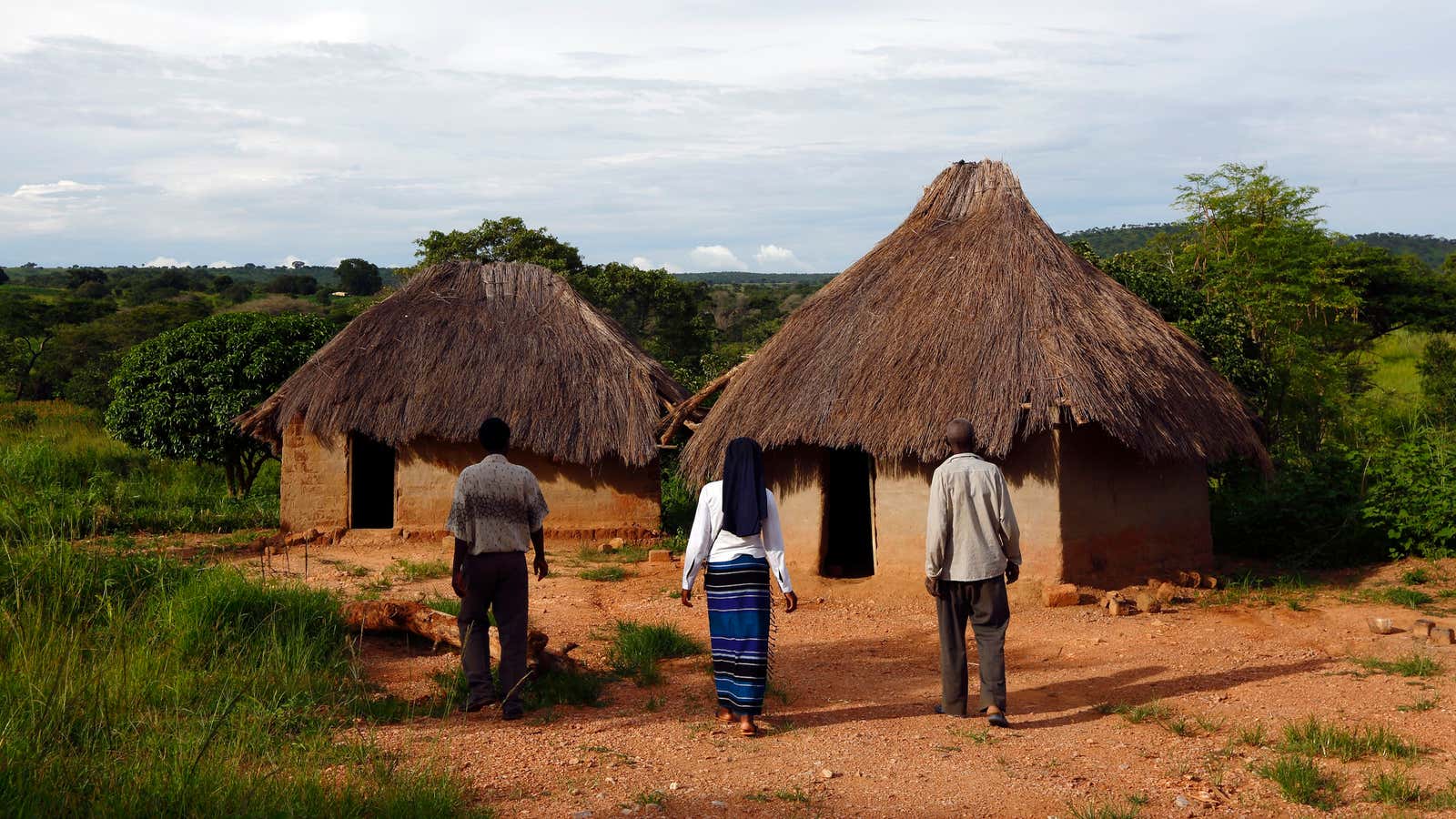When considering who is best qualified to write about life in Zambia, a white, Scottish actress who spent a little time in the country as a teenager probably isn’t the first person to come to mind. Yet this week, the public was treated to just such an ill-advised missive: Louise Linton’s laughably titled Telegraph article, “How my dream gap year in Africa turned into a nightmare.”
I may be especially disgusted by Linton’s exploitation of her Zambian experience because I, too, was once the insufferable product of first-world arrogance and a white-savior complex. Today, I know better: There’s nothing worse than a Westerner who goes to a developing country and manages to make it all about them.
The article, an excerpt of Linton’s self-published memoir In Congo’s Shadow, tells the story of how she went to Zambia after graduating high school in 1999 “with hopes of helping some of the world’s poorest people.” She claims to have then spent a harrowing period fleeing vaguely threatening “rebels” who apparently spilled over from the neighboring Democratic Republic of Congo, formerly Zaire.
It’s bad enough that the article is unflaggingly solipsistic. It’s accompanied by glamour shots of the white-blond author, and while the reader learns nothing about the Congolese War, we do hear about her fears of what the rebels will do to “skinny white muzungu with long angel hair.” But Zambians have also rightly and resoundingly rejected the premise of the article and memoir, pointing out numerous instances of embellishment and inaccuracy, if not outright fabrication.
“The biggest grievance, according to readers from Zambia, is Linton’s misrepresentation of one of the most stable countries on the continent,” writes Quartz’s Lily Kuo. “In fact, academics have tried to understand why peace persists in Zambia, which avoided civil war when as many as 20 other conflicts were engulfing the continent between 1990 and 2000, the period that Linton was there.”
I know too well the sense of anthropological hubris that comes with brief immersion in a foreign locale. As a junior in high school, I spent six months volunteering in Paraguay—a country that jockeys with Bolivia for the status of South America’s poorest country.
During my time in rural San Pedro, I grew to love the community I was placed in, and what I would obnoxiously refer to for months afterward as “the Paraguayan lifestyle.” I woke at sunrise and went to bed at sundown. When I wasn’t volunteering, I was sitting beneath flower-strewn verandas, sipping iced tea and chatting idly in broken Spanish.
I returned to the States parroting a common Paraguayan saying, “tranquilo pá,” a creolization of Spanish and native Guaraní that essentially translates to “hakuna matata.” I lectured friends and family on the wonders of living simply, the gratuitousness of our material obsessions, and my newfound ability to focus on “the important things in life.” I unashamedly portrayed Paraguayans as a mystical people who had found authentic happiness in a life without Internet, cell phones drive-through Starbucks.
What white, upper-middle-class youths in the West fail to realize when they temporarily export themselves to the developing world is that there are no mystical people. People live one day at a time, finding happiness and pleasure where they can, the world over. It is equally patronizing to express our amazement at this fact—as Linton does at the “smiling gap-toothed child with HIV whose greatest joy [is] to sit… and drink from a bottle of Coca-Cola.” Yet white Westerners insist on making people in the developing world into supporting characters in their own stories.
The offense is further exacerbated when Westerners insist on documenting their shallow dips into the developing world on blogs, articles and memoirs. The perspective of an 18-year-old British white woman is unlikely to add much value to the annals of modern history. If The Telegraph was genuinely interested in adding to the conversation about the Congolese war, surely it would have been advisable to seek out one of the many educated people with the profound contextual knowledge that can only be acquired through lived experience. But of course, the media often isn’t actually interested in what’s going on in the developing world. Their interest extends only so far as it adds to privileged Westerners’ journeys of self-discovery.
If there is a lesson to be gleaned from fumbles like In Congo’s Shadow, it is this: a few months spent building houses in Guatemala does not make you an expert on the Central American child-migration crisis. Two years working for Teach for America in Newark has not equipped you with the expertise to tackle “what’s really plaguing America’s inner city schools.” And certainly a gap year spent within a few hundred miles of a conflict zone, where thousands of real lives were lost, does not necessitate an oblivious memoir that paints a crude picture of how it all affected you.
